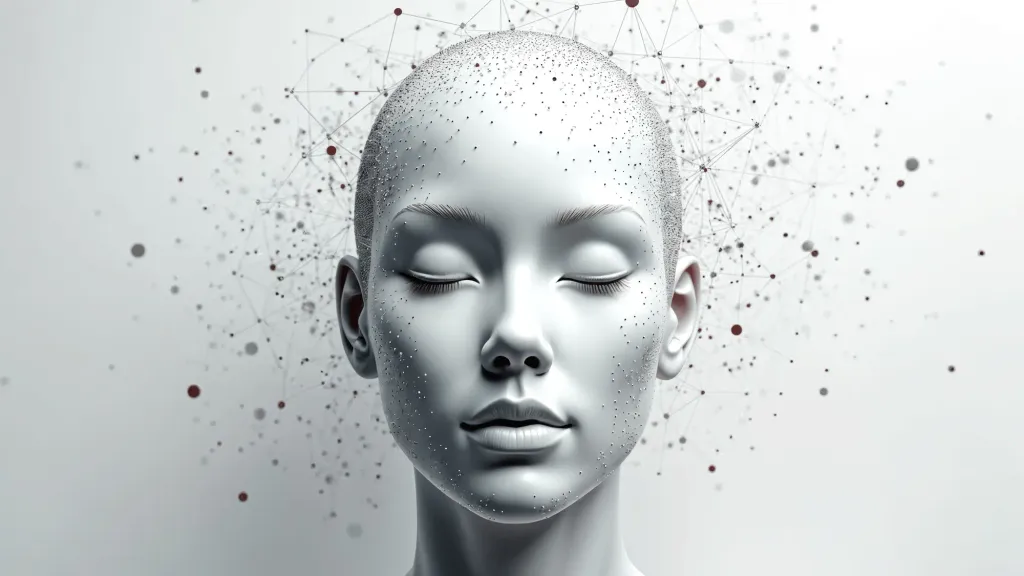Opening Scene
The Shift in Motion
The first wave of digital transformation was about conversion. Paper became pixels. Processes became platforms. Teams became data.
It was a decade of digitising what already existed, of making the analogue more efficient, the manual more automated, the visible more measurable. But something subtle is now shifting beneath that progress. As AI, data, and automation converge, we've entered a new era where the question is no longer how to digitise the enterprise, but how to evolve it.
The Insight
What's Really Happening
We're standing on the edge of what can only be called the intelligent enterprise, organisations that don't just store information or execute tasks, but sense, learn, and adapt in real time.
In this next phase of transformation, the enterprise behaves less like a machine and more like a living organism.
- Data becomes the nervous system, carrying signals across every function.
- AI becomes the brain, analysing, deciding, and predicting without waiting for human input.
- People become the heart, setting purpose, ethics, and direction, the qualities no algorithm can emulate.
The intelligent enterprise doesn't react; it anticipates. It doesn't optimise quarterly; it adapts continuously.
Every decision is informed by context. Every process learns from itself. Every customer experience evolves as fast as expectations.
We already see early versions of this future. Siemens has embedded AI-driven sensors in its manufacturing plants, allowing machinery to self-diagnose before failures occur. Salesforce's Einstein platform analyses billions of interactions to recommend next-best actions in real time. Even retail, long obsessed with personalisation, is moving toward adaptive commerce, where pricing, product curation, and customer service shift dynamically, driven by live behavioural data.
The message is clear: the enterprise is no longer a collection of systems. It's becoming an ecosystem, alive, aware, and self-improving.
The Strategic Shift
Why It Matters for Business
This transformation changes everything about how we build, operate, and measure organisations.
Digital transformation used to mean efficiency. The next wave means intelligence. Where once we automated tasks, now we're automating judgment.
That requires a different kind of architecture, one that connects data, AI, and automation in a loop rather than a line. McKinsey's 2024 AI State of the Enterprise report found that companies achieving measurable ROI from AI are those that design AI-native workflows, embedding learning and adaptation into every layer of decision-making.
In other words, the winners aren't the most digital, they're the most contextually intelligent.
For leaders, this means shifting focus from transformation as a one-off project to transformation as an ongoing state of evolution. The enterprise of the future won't be measured by uptime or throughput, but by responsiveness: how quickly it learns, how accurately it predicts, and how effectively it translates data into action.
This shift is especially critical for brand and customer experience leaders. As generative AI mediates more of our interactions, through assistants, agents, and adaptive interfaces, customer journeys will no longer be linear or static. They will unfold dynamically, responding to behaviour in real time.
That means your brand is no longer defined by a campaign or touchpoint. It's defined by the intelligence of the systems that represent you.
The Human Dimension
Reframing the Relationship
The fear, of course, is familiar: does intelligence at this scale make humans less relevant?
The answer lies in reframing the relationship. AI may think faster, but it still doesn't care. Automation may scale decisions, but it still doesn't define values.
The future of transformation isn't about replacing people with machines, it's about augmenting human potential with intelligent systems that expand our capacity for creativity, foresight, and empathy.
As technology takes over repetition, humans gain the space to focus on the questions algorithms can't answer: Why are we doing this? Who benefits? What impact will it have?
That shift, from efficiency to meaning, is what will separate tomorrow's intelligent enterprises from today's digital ones.
Because intelligence isn't just about computation. It's about consciousness, about understanding not just what to optimise, but why.
When every system learns, every dashboard predicts, and every workflow adapts, humans become the sense-makers, the curators of intent in an increasingly autonomous world.
The Takeaway
What Happens Next
Transformation has always been about change. But this next chapter is about evolution, not faster processes or better dashboards, but organisations that think and respond like living systems.
The opportunity is immense, but so is the responsibility. Intelligent enterprises will need to define not just how they act, but how they decide to act. They'll need governance as dynamic as their data, and ethics as embedded as their algorithms.
For leaders, the path forward is clear:
- Build systems that learn continuously.
- Design experiences that adapt intelligently.
- And most importantly, lead with human purpose at the centre of machine capability.
Because in the end, the future of transformation won't belong to the most digital businesses, it will belong to the most intelligently human ones.



